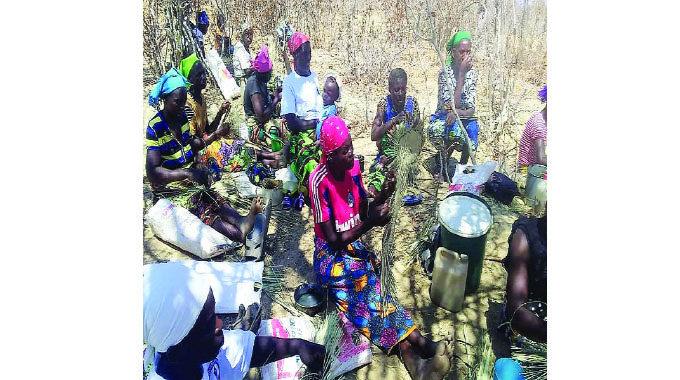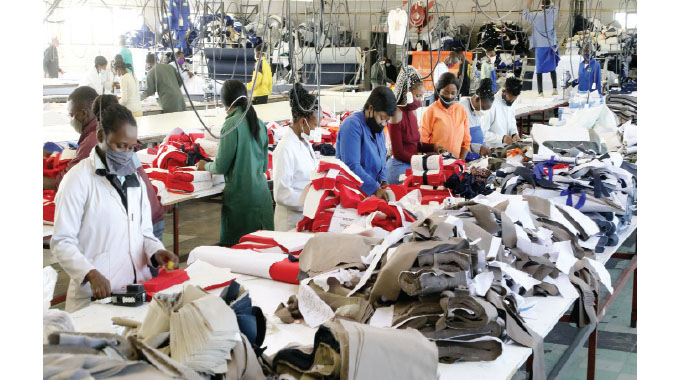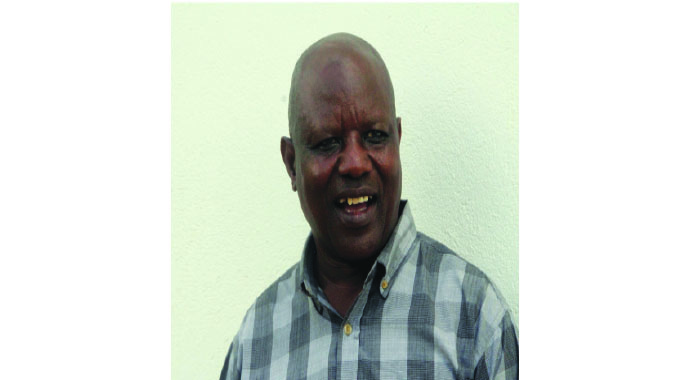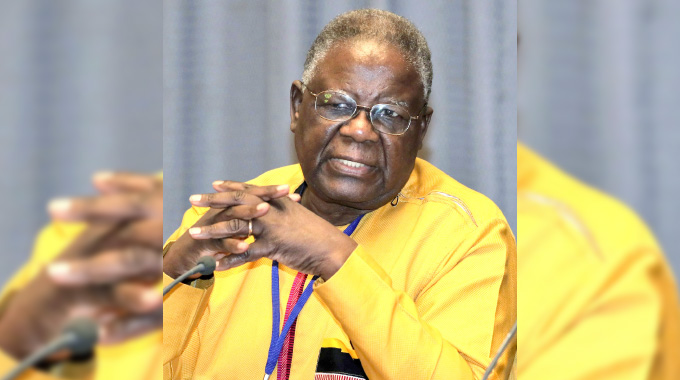Binga women sustain livelihoods through basket weaving

Hazel Marimbiza
Under the scorching afternoon sun of Binga, rural women are splitting strands of dry grass ready to weave them into baskets.
Splitting strands of dry grass in preparation for weaving them into baskets is seemingly a task many people may perceive as needlessly menial but for women in rural areas, this exercise is bringing in fortunes.
Binga is one of Zimbabwe’s basket weaving communities. The popular Tonga baskets have found an international market in art and design which brings in much-needed revenue. The range of baskets with designs inspired by nature depict the cultural values of the weavers.
Mrs Martha Kalela learned to weave as a young teenager. She fell in love with the craft and has been weaving ever since. She specialises in traditional basket weaving using palm leaves.
Her typical day begins very early, before the sun rises, when she prepares for the morning and ensures her family gets what they need to depart for work and school. By 8.30AM, she has begun her own work. She weaves for more than six hours each day.
She meets her friends in the shade of a large tree where they gather to share ideas and encouragement for each other’s projects.
Each basket takes at least seven days to create. Mrs Kalela said large baskets with more complicated designs can take as long as a month. From start to finish, the weavers’ process is entirely handmade.
The women weave using leaves from ilala palm trees.
“To harvest our materials, we use an axe to cut the leaves from the local ilala palm that grows in the bush surrounding the village. Each palm stalk contains both hard and soft leaves that must be separated and severed from their base using a sharpened knife.
“After we have completed the de-stemming and sorting process, we boil the leaves to soften them. We add tree bark and roots to help darken the leaves and continue to boil the pot until everything is very dark. After the leaves have cooled and air dried in the hot sun over several days, the weaving process begins,” said Mrs Kalela.
She highlighted that their designs are memorised and many are inspired by the nature that surrounds them.
“The centre of each basket begins with a distinctive herringbone pattern that blends elegantly into unique designs,” said Mrs Kalela.
The baskets these women weave are useful in many ways and traditionally, they are used in Zimbabwe for serving fruit, filtering grain and gathering eggs. In some instances they are given as a traditional wedding gift because of their usefulness.
“We think they are a wonderful and practical gift, either as a serving basket or featured as a collection on the wall. Their neutral colours and organic patterns compliment any design style, from contemporary to traditional,” said Mrs Kalela.
Earnings from the baskets are used to support their families as well as cover schooling fees for their children.
According to the weavers, it is important to invest in the future and help those less fortunate so they have big hopes for their weaving business.
“We wish to be the biggest supplier of baskets. We also hope to have a farm for palm trees and empower women of different age groups to weave,” said Mrs Kalela.
The women are working towards using funds they raise from their basket sales to build a children’s home, two schools and a hospital.
The venture may have brought financial independence, but it has also given the women more.
“Basketry has not only offered a source of livelihood, but it has also opened doors for us in the world as we are able to sell our products out of the country,” said Mrs Kalela.
While most of the artisans learnt the skill from their parents and grandparents, others are weaving successfully with the help of Kunzwana Women’s Association which empowers women by training them to have successful weaving businesses.
Kunzwana Women’s Association is a Zimbabwean non-governmental organisation which has adopted a duty to economically empower women and youth from rural culture through the provision of practical skills training in a variety of skills for income generation and self-sustenance.
Kunzwana Women’s Association director Mrs Emmie Wade said the organisation seeks to promote and facilitate the social, economic, educational and cultural advancement of the disadvantaged unemployed rural women.
“This is done to encourage transitioning from craft to utility and ensuring that basket weavers understand the intrinsic value of their craft. Making baskets raises awareness about the inter-relationship of basketry to other tribal cultural heritages. It also helps in moving away the clichés of poverty among the Tonga people,” said Mrs Wade.
According to research, basketry raises awareness among the people of not only the vital presence of long-standing and extraordinary artistic expressions but also of the very presence of the large people.
It strengthens the market value of indigenous handmade art in order to make basket making a more economically viable occupation or a vocation. It also aims to highlight the importance of all segments of society to work together to strive for peace.
Today, many Tonga women utilise traditional weaving techniques to create intricately patterned baskets. All natural and locally harvested materials – such as wild grasses, small vines, and palm leaves dyed with tree bark – make up the baskets.
The largest sized bowls are still used by the baTonga people for their original purpose of winnowing grains.
Basket weaving has been a defining the future of African communities and for these rural women, it has changed their lives.
Because basket weaving is now creating jobs, exporters are organising the women undertaking this craft all year round, and they pay them so that they weave the baskets whose demand is high.
Despite the benefits from basket making, the women involved in making them cite many difficulties associated with their production.
“Climate change is one challenge as it reduces the yield of ilala palm which is needed to weave the baskets,” said Mrs Wade.
The women also complain about lack of decent places to sit while making the baskets.
“Sheds are hardly available for us. Most of the baskets are made in leisure times. Due to these difficulties, productivity does not reach its full, optimum level. A room, a decent meeting place is all we need,” said Mrs Kalela.
Logistical problems also come into play, as getting reliable transport for transporting products is not easy.
Creating conducive working conditions for the women will go a long way in making their work easier. This will improve productivity, and the hopes of doubling the basket weaving sector’s export sales will come to fruition.












Comments